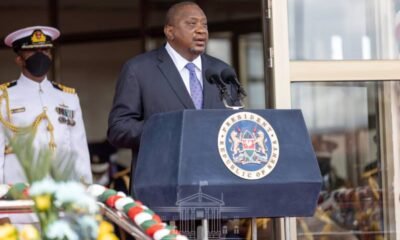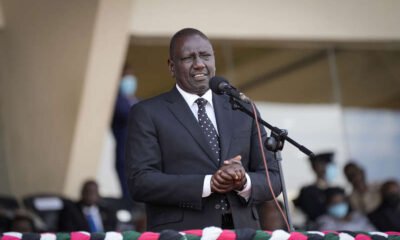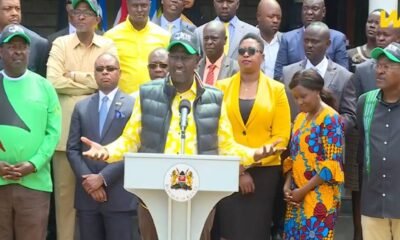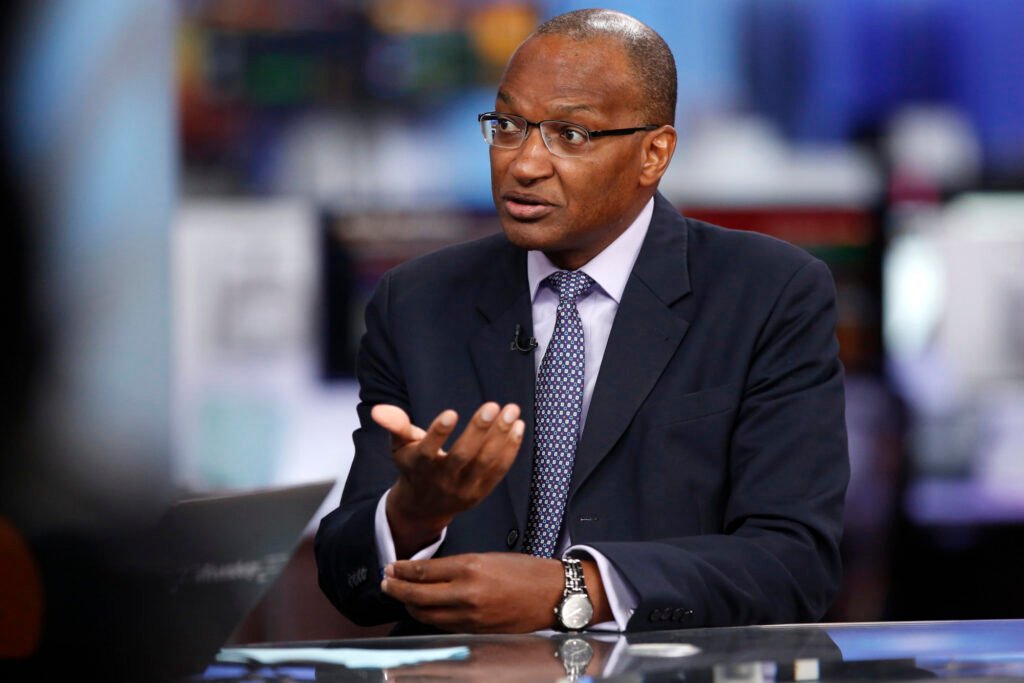Business
Taxes Pain In Uhuru Kenyatta’s Final Sh3.3trn Budget
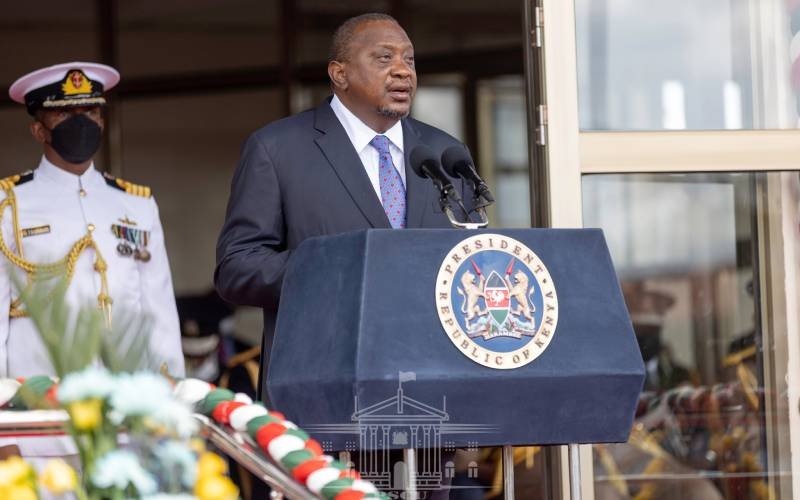
President Uhuru Kenyatta’s last budget will put his successor under pressure to raise Sh350.7 billion in fresh profit to apply his preferred systems, setting up Kenyans for advanced taxation and aggressive pursuit of duty cheats.
Treasury Cabinet Secretary Ukur Yatani will Thursday autumn reveal to MPs how he’ll fund the record Sh3.31 trillion budget for the time starting July in a ritual that will take place two months before due to the August 9 bean.
The front- runners in the 2022 presidential choices — opposition leader Raila Odinga and Deputy President William Ruto — have promised fresh social spending.
Formal sector workers, landlords, pots and ordinary consumers are headed for an anxious autumn as the Treasury targets Sh2.024 trillion in levies, a growth of20.9 percent on the current Sh1.67 trillion.
Judges anticipate the sharp growth in specific parts of the duty earnings to come with strong growth or advanced duty rates.
Top on the list of targeted profit sources is income duty, whose fresh profit is anticipated to rise by Sh179.4 billion to Sh997.3 billion, motioning a possible advertisement of new duty measures on workers’ hires and company earnings.
Mr Yatani also plans to collect Sh107.6 billion further from Handbasket to Sh548.7 billion and excise duty, targeting particulars like beer, cigarette and pop, which is projected to rise Sh37.6 billion to Sh297.2 billion.
Similar situations of profit growth are generally only possible in an terrain of robust profitable growth that increases the number of workers, yields advanced hires for those formerly working and raises commercial gains.
The volition is a rise in the duty rate.
The Kenyan frugality is on a recovery mode from Covid-19 profitable rigors, which started layoffs, pay cuts and business closures.
The Treasury had earlier blazoned a new crackdown on fat duty evaders as part of its budget for the time starting July, setting the stage for trip bans, means snap and deactivation of Particular Identification Figures ( Legs).
Duty experts said Mr Yatani will likely raid easy targets similar as alcohol consumers and smokers for further levies from beer, wines, spirits and cigarettes despite the goods being subordinated to advanced levies every October in line with average affectation for the antedating fiscal time.
Capital gains duty is a duty on the profit realised on the trade of an asset similar as trade of stocks, bonds, precious essence, real estate, and property.
The government is trying to raise finances for development systems to goad growth and produce jobs, but judges say duties similar as capital levies could discourage foreign investors.
Mr Kenyatta’s administration has made changes to the capital earnings duty during its near 10- time term after it was dropped in themid-1980s to attract foreign and original investment. In 2014, Mr Kenyatta inked into law a five percent capital earnings duty.
Experts also anticipate a clampdown on the fat duty cheats, high-net-worth professionals and dealers, to recover overdue levies in sweats to raise the public earnings.
Business
Inflation Concerns Prompt Central Bank of Kenya to Make Largest Rate Hike in 11 Years
Business
Firms Hoard Petrol, Diesel To Protest Late Payments
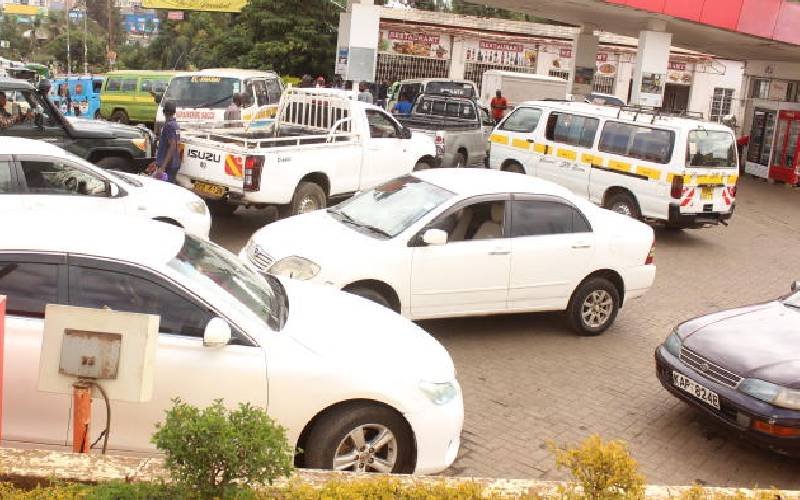
Drivers in some corridor of the country are scuffling a major energy deficit as canvas marketing enterprises reportedly stow petroleum products to protest at the government’s failure to pay them outstanding subventions running into billions of shillings.
The government pays yearly subventions to the canvas marketers to stabilise the prices of petroleum products as a measure to control the cost of living and bumper consumers from price increase shocks.
Petrol stations in the North Rift and Western Kenya have been reporting stock-outs over the last many days and the situation got worse history, a script that assiduity players advise could unfold in other corridor of the country.
Some unconscionable dealers in North Rift municipalities took advantage of the deficit to raise pump prices. They vended petrol and diesel above the outside recommended prices set by the Energy and Petroleum Regulatory Authority (Epra) every month.
Epra sets the prices on the 14th day of each month. In the rearmost review, it raised petrol and diesel prices by Sh5 per litre but the cost of kerosene remained unchanged.
Assiduity sources claimed that canvas marketing companies were hoarding products to protest the failure by the government to remit finances it owes them for anteceding their perimeters under the energy stabilisation programme.
To keep the energy prices stable, the enterprises have been anteceding their perimeters but are latterly compensated by the government with plutocrat from the Petroleum Development Levy.
The enterprises say they’re owed Sh32 billion, which would be original to perimeters for about four months, going by the Sh8 billion, which the Petroleum Ministry has in the history said is the quantum paid monthly by the government to buffer Kenyans from high cost of energy.
Still, the Petroleum Ministry has disputed the figure, saying it owes the assiduity Sh13 billion.
Mr Andrew Kamau, the Star Secretary in the Petroleum Ministry, said the deficit of energy was due to fear buying after drivers replied to reports of petroleum product dearths in the country.
“The pending bill is only Sh13 billion, which is just 1.5 months and is being processed… (it is) pending verification before payment,” he said.
Epra in a statement attributed the stockouts to “unprecedented logistical challenges”.
“These challenges have caused independent petroleum dealers to run out of petroleum stocks,” said Epra, adding that it was working together with the Petroleum Ministry and oil firms to resolve the supply hitches.
Mr Joseph Karanja, president of the Kenya Independent Petroleum Dealers Association, said the deficit had persisted for further than a week now and has been snowballing into what might potentially come a extremity if not dealt with.
“Major oil marketers have not been releasing products to us,” he said. Petroleum Outlets Association of Kenya national coordinator John Njogu said the shortage has seen over 200 fuel stations in various parts of the country closed down.
“This has affected towns like Kajiado, Githurai, Kitui, Nyahururu and North Rift among other areas,” Mr Njogu said in a phone interview.




